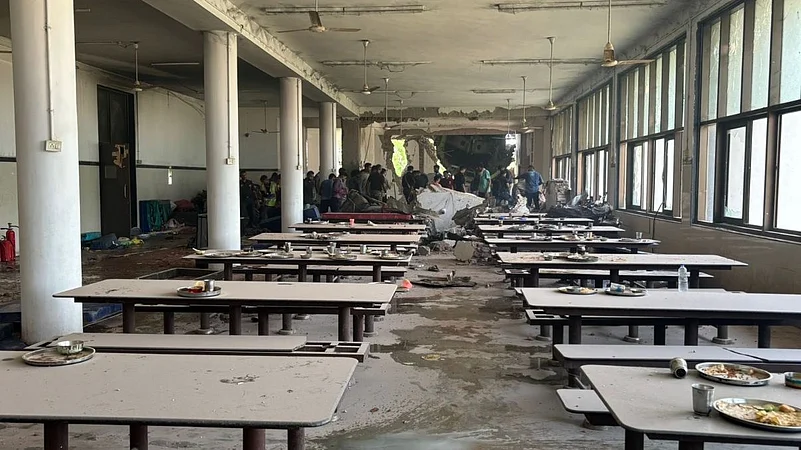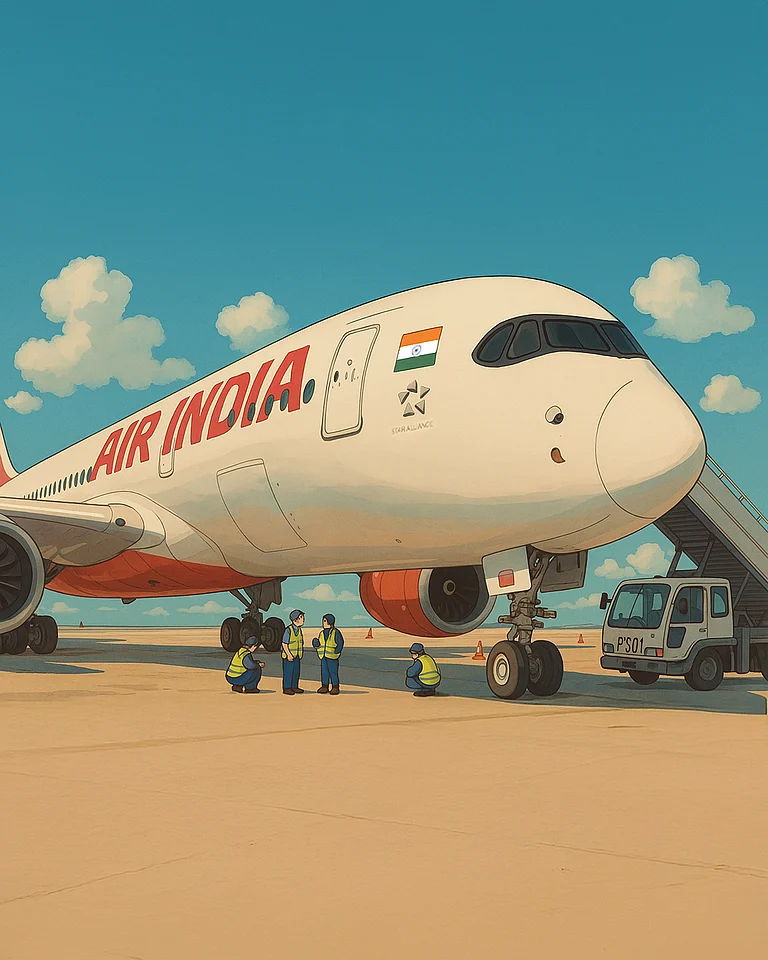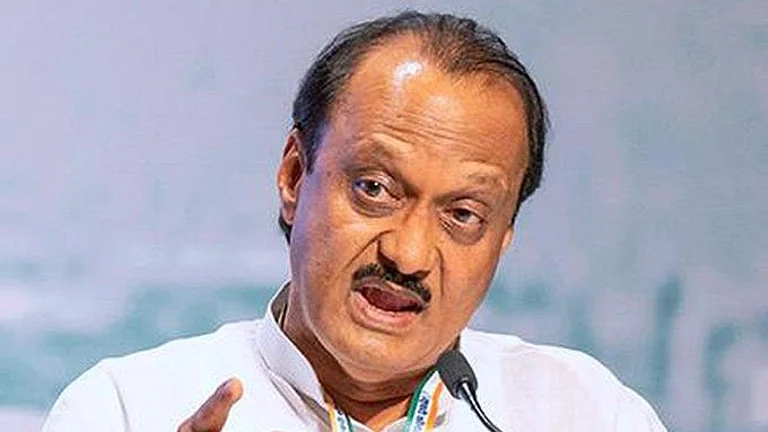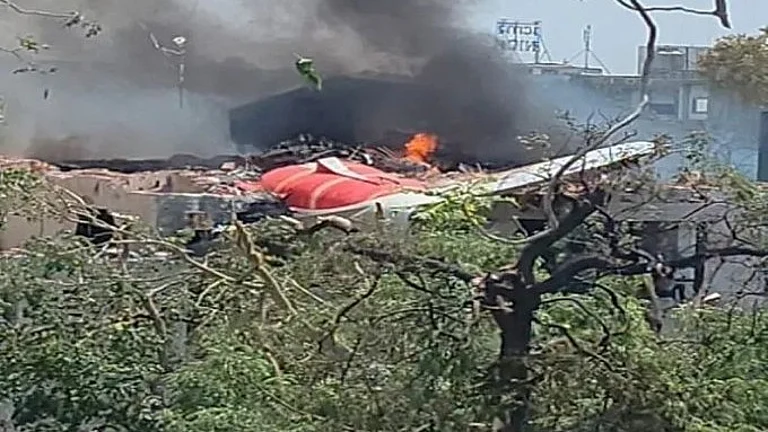American aircraft manufacturer Boeing said in an official statement that it is aware of initial reports of a plane crash in Ahmedabad and is working to gather more information. The Air India flight from Ahmedabad to London reportedly crashed minutes after takeoff on Wednesday afternoon, hitting a medical college building near the airport.
The Boeing 787-8 Dreamliner, registered as VT-ANB, took off from Runway 23 at 1:39 PM IST and issued a mayday call moments later before losing contact with Air Traffic Control.
“We are aware of initial reports and are working to gather more information,” Boeing said in a statement shared with Outlook Business.
Following reports of the crash, Boeing shares fell as much as 8% in pre-market US trading. In early trade, Boeing Co. was down 1.84 points at $214.00. Despite the dip, the stock remains up 20.9% year to date, having gained $37 so far in 2025.
Meanwhile, Indian airline stocks such as InterGlobe Aviation (IndiGo) and SpiceJet saw sharp declines on June 12 following the news.
"We are in contact with Air India regarding Flight 171 and stand ready to support them. Our thoughts are with the passengers, crew, first responders and all affected," the company said in post on X.
What Happened with Air India Flight AI-171?
Air India’s Boeing 787 Dreamliner, operating as flight AI-171 from Ahmedabad to London Gatwick, crashed shortly after takeoff on Wednesday afternoon, according to the Directorate General of Civil Aviation (DGCA). The aircraft was carrying 242 people, including two pilots and 10 cabin crew members.
The flight was commanded by Captain Sumeet Sabharwal, a line training captain with reportedly 8,200 flying hours, and First Officer Clive Kundar, with 1,100 hours. Moments after takeoff at 1:39 PM IST, the crew issued a MAYDAY distress call. No further communication followed before the plane crashed just outside the airport perimeter. Eyewitness videos on social media show thick black smoke billowing from the crash site.
Emergency services launched a massive response. Prime Minister Narendra Modi spoke with Home Minister Amit Shah and Civil Aviation Minister Ram Mohan Naidu, calling for swift action and full support for those affected. Former Gujarat Chief Minister Vijay Rupani was reportedly on board and survived with minor injuries.
Rescue and recovery operations are ongoing. Authorities are working to confirm the number of casualties and determine the cause of the crash. Three National Disaster Response Force (NDRF) teams, comprising 90 personnel, have reached the site from Gandhinagar, with three additional teams being deployed from Vadodara.
“The scenes emerging of a London-bound plane carrying many British nationals crashing in the Indian city of Ahmedabad are devastating. I am being kept updated as the situation develops, and my thoughts are with the passengers and their families at this deeply distressing time,” said UK Prime Minister Keir Starmer in a post on X.
Boeing’s History of Mishaps
In recent years, Boeing, one of the world’s largest aircraft manufacturers, has faced intense scrutiny as its aircraft—particularly the Boeing 737, 737 MAX, and 777 Dreamliner—have been involved in accidents, turbulence-related injuries, and mid-air incidents.
The company was already grappling with the aftermath of two fatal crashes involving its aircraft in Ethiopia and Malaysia when a mid-air door panel blowout in January 2024 further damaged its reputation.
That incident involved an Alaska Airlines Boeing 737 MAX 9, which suffered a door plug blowout mid-flight, forcing an emergency landing. Though, no fatalities occurred.
In December 2024, Jeju Air Flight 2216, a Boeing 737-800, crashed during landing in South Korea, killing 179 people.
Following the Alaska Airlines blowout, the US Federal Aviation Administration (FAA) grounded 171 Boeing 737 MAX 9 aircraft and issued an emergency airworthiness directive mandating door plug inspections. The FAA also conducted unannounced audits, imposed tighter oversight, and capped MAX production at 38 aircraft per month until Boeing demonstrated reliable safety and quality processes.
The US National Transportation Safety Board (NTSB) launched an investigation into manufacturing flaws, and the Department of Justice (DOJ) later opened a criminal inquiry. Boeing eventually pleaded guilty to a felony charge of conspiracy to defraud the United States related to earlier safety violations, agreeing to a $487 million fine. Admiral Kirkland Donald was appointed as an independent advisor to oversee Boeing’s production and safety reforms.
Amid the crisis, Boeing saw sweeping leadership changes. CEO Dave Calhoun stepped down in 2024. Board Chairman Larry Kellner resigned and was replaced by Steve Mollenkopf, while Commercial Airplanes President Stan Deal was succeeded by Stephanie Pope. In August 2024, Kelly Ortberg, formerly of Rockwell Collins, was appointed CEO. Ortberg has since focused on rebuilding trust, improving transparency, and reshaping Boeing’s safety culture.


































